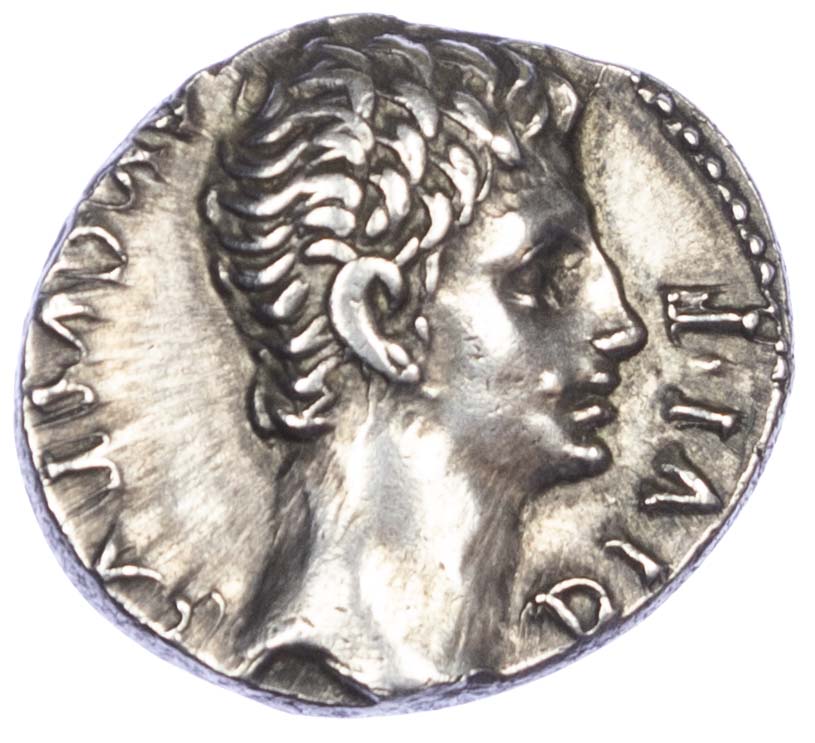
According to Suetonius, Octavius added the surname Thurinus ( Latin: ) to his birth name as an infant in 60 BC.
#Augustus denarius free
The Triumvirate was eventually torn apart by the competing ambitions of its members Lepidus was exiled in 36 BC and Antony was defeated by Octavian at the Battle of Actium in 31 BC.Īfter the demise of the Second Triumvirate, Augustus restored the outward façade of the free Republic, with governmental power vested in the Roman Senate, the executive magistrates and the legislative assemblies, yet maintained autocratic authority by having the Senate grant him lifetime tenure as commander-in-chief, tribune and censor. Following their victory at the Battle of Philippi (42 BC), the Triumvirate divided the Roman Republic among themselves and ruled as de facto dictators. He, Mark Antony and Marcus Lepidus formed the Second Triumvirate to defeat the assassins of Caesar.

His maternal great-uncle Julius Caesar was assassinated in 44 BC and Octavius was named in Caesar's will as his adopted son and heir as a result, he inherited Caesar's name, estate, and the loyalty of his legions. Originally named Gaius Octavius, he was born into an old and wealthy equestrian branch of the plebeian gens Octavia. The Roman world was largely free from large-scale conflict for more than two centuries, despite continuous wars of imperial expansion on the Empire's frontiers and the year-long civil war known as the " Year of the Four Emperors" over the imperial succession. The reign of Augustus initiated an imperial cult and era associated with imperial peace, the Pax Romana or Pax Augusta. His status as the founder of the Roman Principate (the first phase of the Roman Empire) has consolidated a legacy as one of the greatest leaders in human history. Caesar Augustus (23 September 63 BC – 19 August AD 14), also known as Octavian, was the first Roman emperor, reigning from 27 BC until his death in AD 14.


 0 kommentar(er)
0 kommentar(er)
